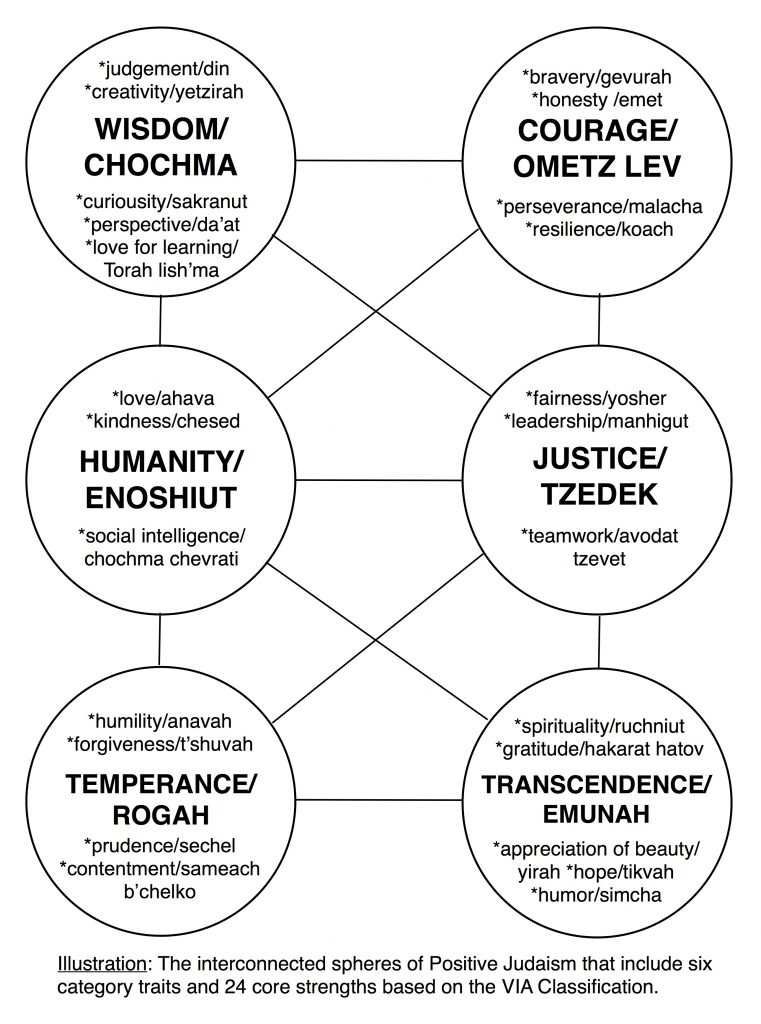Dear Reader,
As a congregational rabbi, author, and public speaker, I meet a huge range of people and I am brought into daily contact with great joys and deep pain. Over the years of my life and my career, I’ve often wondered, what makes the difference between a flourishing life and a depressed life? I’ve studied and researched this question. I have asked it of myself and my closest friends. And I have poured over ancient wisdom and modern philosophy to get at this question.
One truth I have learned is that everyone struggles in some way or another. No matter your finances, your job status, your relationship situation, your state of physical health, or where you live, everyone struggles. Nobody is immune to accidents, illness, trauma, loss, and pain. Including me. Yet, it’s always intrigued me that while some people get stuck in their negativity, suffering, and depression, others seem to excel and to thrive no matter the circumstance.
Is the difference based on a person’s psychological make-up? Are some people more prone to negativity and stress while others tend towards happiness and calm?
Is the difference found in a person’s job and income level? Are people with wealth, impressive titles, educational pedigree, and bigger closets, happier than those with smaller bank accounts and fewer possessions?
Is the difference found in where people live? Are people in California who walk on the beach every day happier than those in New York City who ride the subway?
Research suggests it’s none of these things. Contrary to what many people believe, life satisfaction is not based on wealth and professional success. It’s not based on social or career status. And it’s not based on the number of likes one gets on their social media account. Rather, wellbeing and life satisfaction have to do with living the right balance in five domains of life: Work, Relationship, Money, Health, and Community
We are going to explore each of these five life domains in this blog series from a unique perspective, something that has never been done until now. I am going to teach you about thriving and flourishing life from a Jewish perspective, supported by the science of wellbeing and happiness.
Positive Judaism: Where Spirituality and Psychology Meet
Positive Judaism is a multi-disciplinary effort that combines my two areas of interest: faith and spirituality with science and psychology. For example, it is a religious practice to give charity and to tithe. But did you know that charitable giving has been studied in the research laboratory? Social scientists have examined the effects that giving charity has on the donor and the results are in: the person who gives charity has a higher level of wellbeing and life-satisfaction than one who does not give charity. This is Positive Judaism: spiritual practices that add positivity to our lives and to the world.
Take personal relationships. The Bible teaches that it is a commandment to have a spouse and to raise children, “to be fruitful and to multiply.” But what does research conclude about the benefits of marriage and parenthood? On the one hand, it’s been shown that married couples live longer and are physically healthier than the non-married. It’s also been shown that parents are happier than people who do not have children — but not in all circumstances.
I’m going to present the latest research on marriage and show you what the experts are saying about how to create and nourish healthy and loving relationships. On the other hand, for those of you in difficult marriages, asking yourselves with honesty if it’s time to move on, I’m going to show you what Judaism has to teach about divorce (you may be surprised). This is Positive Judaism: upholding tradition while simultaneously understanding how research can help us live our best life possible.
One final example: work life. The Talmud asks, “who is rich?” The answer from religion is, “one who is happy with what they have.” Yet when 200,000 university students were asked about their life goals recently, 77% of them stated that making money was their most important goal.
Making money is important. But how much money do people need to be happy and what is the effect on a life where making money is the single most important goal? When put under a microscope, the studies conclude that there is only a slight relationship between wealth and happiness. The purpose of living a Jewish life is not about making money, it is about creating meaning. Inspiring you to raise the level of your wellbeing and happiness (which is in your power) through spiritual teachings and scientific research, this is Positive Judaism.
To your positivity and well-being,
Rabbi Darren Levine

